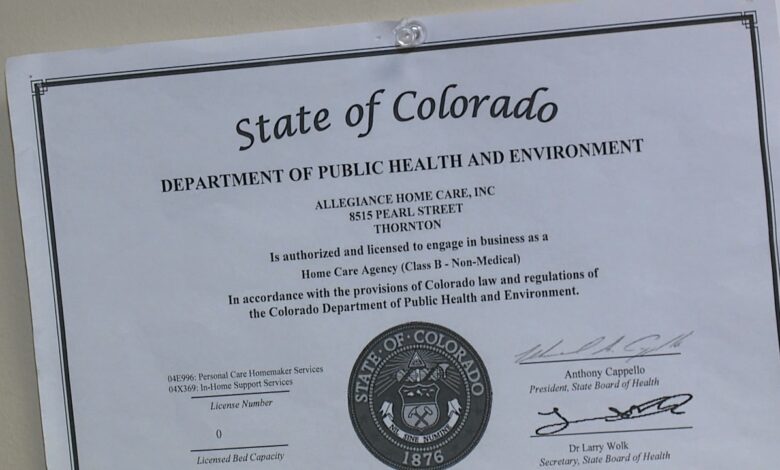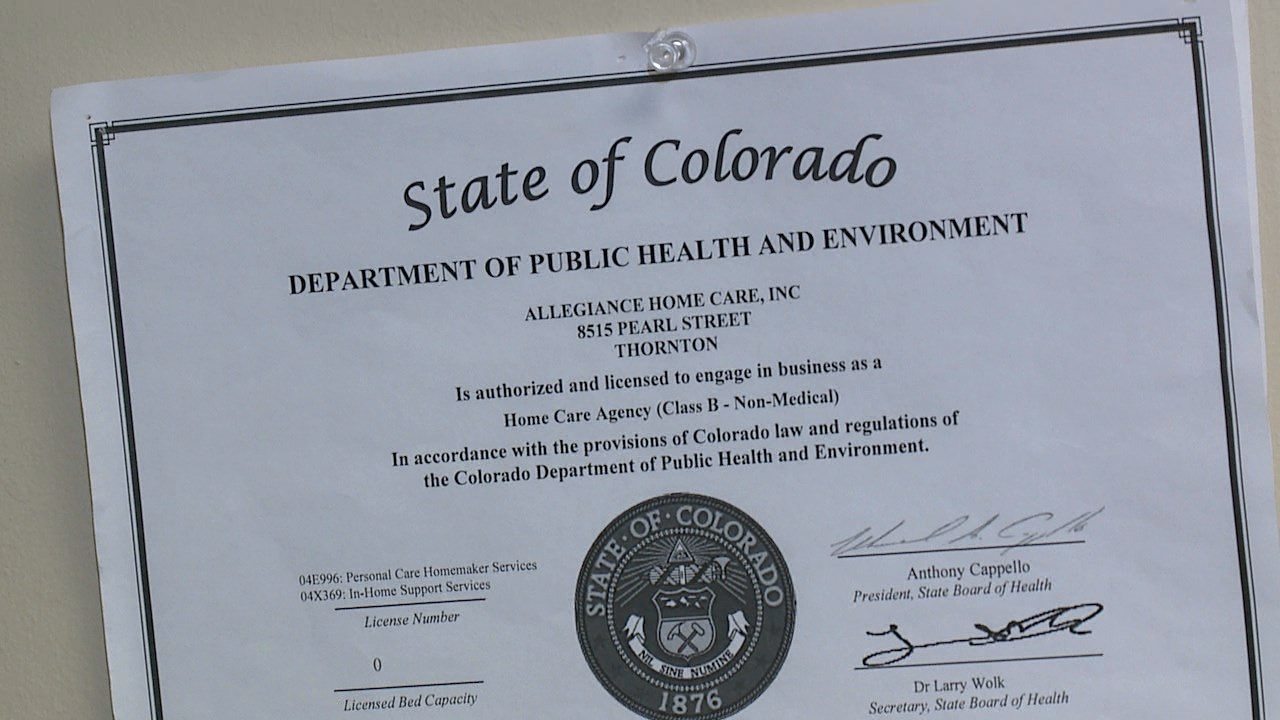
Colorado shuts down Friday Health Plans
Colorado shuts down Friday Health Plans – the news sent shockwaves through the state. Thousands of Coloradans suddenly found themselves scrambling for new health insurance, facing uncertainty about their healthcare access and potential financial burdens. This unexpected closure has raised serious questions about the stability of the state’s healthcare market, the regulatory oversight of insurance providers, and the long-term implications for affordable healthcare access.
The immediate impact was widespread disruption, leaving many feeling lost and vulnerable.
This post delves into the fallout from Friday Health Plans’ closure, examining the immediate effects on residents, the financial repercussions for stakeholders, the regulatory response, and the potential long-term consequences for Colorado’s healthcare system. We’ll explore the public’s reaction, the media coverage, and offer insights into how this situation might be prevented in the future. We’ll also share some real-life examples of the challenges faced by individuals caught in this unexpected crisis.
The Immediate Impact of the Shutdown
The sudden closure of Friday Health Plans in Colorado has left thousands of residents scrambling to find new health insurance coverage. The immediate impact is significant, creating uncertainty and potential disruptions to healthcare access for those who relied on Friday Health Plans for their medical needs. The ripple effect extends beyond individual policyholders, impacting healthcare providers who may face delayed or unpaid reimbursements.The disruption to healthcare access is multifaceted.
Enrolled members suddenly find themselves without insurance, potentially facing high out-of-pocket costs for existing medical conditions or needed treatments. Many individuals may experience delays in accessing care due to the time required to find and enroll in a new plan. Pre-existing conditions, a particularly vulnerable area, become even more challenging to manage without continuous coverage. The fear of significant financial burden related to medical care weighs heavily on those affected.
The situation highlights the importance of stable and reliable healthcare access and the fragility of the individual insurance market.
Finding Alternative Health Insurance Coverage
Affected individuals have several options for obtaining alternative health insurance coverage. The first step is to understand the deadlines and enrollment periods for the Colorado Health Insurance Marketplace (Connect for Health Colorado) and any special enrollment periods that may be available due to the Friday Health Plans’ closure. The state and federal governments have resources available to assist with this transition.
Navigating the various plan options and understanding the differences in coverage can be complex, so utilizing free assistance programs offered by certified enrollment counselors or seeking guidance from insurance brokers is strongly advised. Directly contacting Connect for Health Colorado is also crucial to obtain personalized guidance and to explore the available plans.
Comparison of Friday Health Plans and Comparable Plans
The following table compares Friday Health Plans’ coverage to some comparable plans available in Colorado. Note that specific plan details and costs can vary depending on individual circumstances, such as age, location, and chosen plan level. This table provides a general overview for comparison purposes only and should not be considered exhaustive. Always refer to the official plan documents for accurate and up-to-date information.
| Plan Name | Premium Cost (Example: Monthly for a Single Adult) | Network Size | Key Benefits |
|---|---|---|---|
| Example Plan A (Connect for Health Colorado) | $300 (Estimate – Varies by plan level and individual circumstances) | Large Network (Statewide) | Comprehensive coverage including doctor visits, hospital stays, prescription drugs |
| Example Plan B (Private Insurer) | $450 (Estimate – Varies by plan level and individual circumstances) | Moderate Network | Similar to Plan A, but potentially with a smaller provider network |
| Example Plan C (Another Private Insurer) | $250 (Estimate – Varies by plan level and individual circumstances) | Smaller Network (Limited Geographic Area) | Potentially lower premiums, but with a more restricted provider network |
| Friday Health Plans (former) | Variable (dependent on plan and individual) | Variable (dependent on plan and geographic location) | Varied based on specific plan selected |
The Financial Implications of the Shutdown

Source: ytimg.com
The abrupt closure of Friday Health Plans in Colorado has sent ripples throughout the state’s healthcare ecosystem, creating significant financial uncertainty for numerous stakeholders. The immediate impact on policyholders is undeniable, but the long-term financial consequences are complex and far-reaching, affecting not only the company itself but also its providers, investors, and the broader Colorado healthcare market. Understanding these financial implications is crucial for navigating the aftermath of this significant disruption.
Financial Losses for Friday Health Plans’ Stakeholders
The shutdown will undoubtedly result in substantial financial losses for Friday Health Plans’ stakeholders. Shareholders will likely experience a significant devaluation of their investments, potentially leading to lawsuits and legal battles. Investors who had placed their faith in the company’s growth and stability now face considerable financial risk. The extent of these losses will depend on the company’s assets, liabilities, and the success of any potential liquidation or sale proceedings.
For example, if Friday Health Plans held significant reserves, the losses might be less severe than if the company operated on a leaner financial model. The ultimate cost to shareholders will also depend on the legal and regulatory environment surrounding the shutdown.
Impact on the Colorado Healthcare Market
The shutdown of Friday Health Plans creates a void in the Colorado healthcare market, impacting competition and potentially driving up premiums for consumers. With one less insurer in the market, the remaining providers may have less incentive to lower prices, leading to increased costs for consumers. This is particularly true in areas where Friday Health Plans held a significant market share.
This reduced competition could also lead to a decline in the quality of care as insurers have less leverage to negotiate favorable rates with healthcare providers. Similar situations in other states have shown that consolidation in the insurance market can lead to higher costs and reduced consumer choice.
Implications for Healthcare Providers Contracted with Friday Health Plans
Healthcare providers who contracted with Friday Health Plans now face immediate financial uncertainty. The abrupt termination of contracts leaves them with unpaid claims and potential revenue losses. This could force some providers to reduce services or even lay off staff. The extent of the impact will vary depending on the size of the provider and the proportion of their revenue that came from Friday Health Plans.
Smaller clinics, in particular, may face significant challenges in recovering from this sudden loss of revenue. Many will need to invest time and resources in finding new insurance contracts, adding further financial strain.
Costs Associated with Transitioning to New Insurance Plans
Individuals and families previously insured by Friday Health Plans will face the added burden and expense of finding new coverage. The process of selecting a new plan, understanding the benefits and coverage details, and potentially paying higher premiums will add significant costs. The open enrollment period may not offer equivalent coverage or pricing, leading to out-of-pocket expenses for essential medical care.
For those with pre-existing conditions, finding comparable coverage might prove particularly challenging and expensive. For example, a family previously paying $500 per month for a plan might now face premiums of $700 or more, representing a substantial increase in their healthcare expenses. This added financial burden could force some individuals to forgo necessary medical care.
Regulatory Response to the Shutdown

Source: philipsmithlaw.com
The abrupt closure of Friday Health Plans sent shockwaves through the Colorado insurance market, immediately triggering a robust regulatory response aimed at protecting consumers and ensuring accountability. The Colorado Division of Insurance (CDI), the state’s primary insurance regulator, took center stage in this response, leveraging its authority to investigate the circumstances surrounding the shutdown and implement measures to mitigate the impact on policyholders.The CDI’s role in overseeing the shutdown was multifaceted.
Their immediate priority was to ensure the continuity of healthcare coverage for Friday Health Plans’ enrollees. This involved working closely with other insurers and the federal government to facilitate a smooth transition to alternative plans, preventing gaps in coverage and minimizing disruption to individuals’ access to essential medical services. Beyond the immediate crisis management, the CDI also launched a thorough investigation into the financial practices and operational decisions leading up to the shutdown, aiming to identify any regulatory violations and prevent similar situations in the future.
The Colorado Division of Insurance’s Actions
Following the announcement of Friday Health Plans’ closure, the CDI acted swiftly. They issued cease and desist orders to prevent Friday Health Plans from further engaging in insurance business in Colorado. Simultaneously, they began a comprehensive review of the company’s financial records and operational procedures to determine the cause of the failure. This involved scrutinizing claims payment practices, reserve levels, and compliance with state insurance regulations.
The CDI also engaged in extensive communication with impacted consumers, providing guidance and support in navigating the transition to new insurance coverage. The CDI’s actions demonstrated a commitment to both immediate consumer protection and long-term regulatory reform.
Investigations Launched Following the Shutdown
The CDI’s investigation into Friday Health Plans’ closure was extensive and multi-pronged. It encompassed a detailed examination of the company’s financial statements, assessing the adequacy of its reserves and the accuracy of its reporting. Investigators also reviewed the company’s compliance with all applicable state and federal insurance regulations. The CDI’s investigation was not solely focused on financial aspects; it also delved into operational procedures, looking for evidence of mismanagement, inadequate risk assessment, or other factors that may have contributed to the company’s collapse.
The findings of this investigation were crucial for informing future regulatory policies and strengthening oversight mechanisms within the Colorado insurance market.
Resources for Consumers Affected by the Closure
The unexpected shutdown of Friday Health Plans left many consumers in a vulnerable position. To address this, the CDI provided numerous resources to help navigate the transition and maintain access to healthcare.
- Dedicated Hotline: The CDI established a dedicated phone line to answer consumer inquiries and provide guidance on finding alternative insurance coverage.
- Online Resources: The CDI’s website offered comprehensive information on the shutdown, including FAQs, a list of available insurance plans, and instructions for enrollment in alternative coverage.
- Assistance with Enrollment: The CDI partnered with consumer advocacy groups and other organizations to provide personalized assistance to consumers needing help enrolling in new health insurance plans.
- Information Sessions: The CDI organized public information sessions to educate consumers about their rights and options in the wake of the shutdown.
- Coordination with Federal Agencies: The CDI worked closely with the Centers for Medicare & Medicaid Services (CMS) to ensure that consumers were aware of their options under the Affordable Care Act (ACA).
Long-Term Effects on the Colorado Healthcare System
The sudden closure of Friday Health Plans leaves a significant void in Colorado’s healthcare landscape, raising serious concerns about the long-term availability and affordability of health insurance for many residents. The immediate impact is clear, but the lingering effects on the state’s healthcare system will unfold over time, potentially exacerbating existing challenges and creating new ones. Understanding these potential long-term consequences is crucial for policymakers and healthcare providers alike.The closure of Friday Health Plans will likely lead to a reduction in the number of health insurance providers in the state, potentially increasing premiums for consumers.
Those who were insured by Friday Health Plans will need to find new coverage, potentially facing higher costs, limited choices, or gaps in coverage during the transition. This could disproportionately impact lower-income individuals and families who relied on Friday Health Plans’ more affordable plans. The resulting decrease in competition could also embolden remaining insurers to raise prices, further restricting access to affordable care.
Increased Premiums and Reduced Choice
The reduction in the number of insurance providers directly impacts competition. Fewer providers often translate to less competitive pricing, resulting in higher premiums for consumers. This effect is amplified when the departing insurer, like Friday Health Plans, offered lower-cost plans that catered to a specific segment of the population. Consumers who previously benefitted from these lower premiums will now face a more expensive market, potentially leading to decreased coverage or forgoing insurance altogether.
This situation is similar to what occurred in other states following the failure of smaller, regional health insurance companies, where consumers saw significant premium increases in the subsequent years. For example, the collapse of several insurers in the Affordable Care Act marketplaces in states like Florida and California led to immediate and sustained price increases.
Increased Uninsured Rate
The disruption caused by Friday Health Plans’ closure will inevitably lead to an increase in the uninsured rate in Colorado. Individuals who are unable to find affordable replacement coverage may opt to forgo health insurance entirely, leaving them vulnerable to significant medical debt in the event of illness or injury. This rise in the uninsured population could strain the state’s healthcare system, increasing the reliance on publicly funded programs like Medicaid and potentially impacting the financial stability of hospitals and clinics that provide uncompensated care.
So, Colorado just shut down Friday Health Plans, leaving a lot of people scrambling for new coverage. It makes you wonder about the future of healthcare access, especially when you consider the expansion of options like the humana centerwell primary care centers walmart – are these large-scale initiatives a solution or just another piece of the puzzle in a complex system?
Ultimately, the Friday Health Plans shutdown highlights the fragility of the healthcare market and the need for reliable, accessible care.
Similar trends have been observed in other states following the collapse of major health insurance providers, demonstrating the direct link between insurer instability and an increase in the uninsured population.
Potential Policy Changes to Prevent Future Failures
Several policy changes could help prevent similar situations in the future. These include strengthening regulatory oversight of health insurance companies, ensuring adequate capital reserves, and implementing stricter risk-based capital requirements. Improved market monitoring and earlier intervention when insurers show signs of financial distress could also be effective. Furthermore, exploring mechanisms to promote market consolidation in a way that maintains competition while enhancing insurer stability could be beneficial.
A well-designed risk adjustment mechanism could also mitigate the financial impact of high-risk enrollee populations.
Proposed Policy: Enhanced Market Stability Fund
To strengthen the stability of the Colorado health insurance market, a hypothetical policy proposal is an “Enhanced Market Stability Fund.” This fund would be financed through a modest increase in state-level insurance taxes, or potentially through a federal grant program. The fund would provide financial assistance to struggling insurers, allowing them to weather temporary financial difficulties without resorting to drastic measures like insolvency.
The fund would be managed by an independent board overseeing the distribution of funds based on objective criteria, ensuring transparency and accountability. This would provide a safety net, preventing the cascading effects of insurer failure and maintaining market competition. Similar funds have been successfully implemented in other states to stabilize their health insurance markets, demonstrating the feasibility and effectiveness of this approach.
Public Perception and Media Coverage
The sudden shutdown of Friday Health Plans sent shockwaves through Colorado, sparking a flurry of public reaction and intense media scrutiny. The event highlighted the precarious nature of the state’s healthcare market and raised questions about consumer protection and regulatory oversight. The response varied widely, depending on individual experiences with the insurer and the political leanings of different news outlets.The public’s initial reaction was largely one of surprise and concern.
Many Friday Health Plans members found themselves scrambling to find new coverage before the disruption of their healthcare services became a reality. Social media platforms became hubs for sharing experiences, anxieties, and information about finding alternative insurance options. Online forums and community groups saw an increase in activity as people sought advice and support from one another.
The uncertainty surrounding the transition created a significant amount of stress and frustration for many Coloradans.
Media Coverage of Friday Health Plans’ Closure
News coverage of the shutdown was extensive and varied considerably in tone and focus. Major newspapers like the Denver Post and the Colorado Sun provided detailed reports on the financial difficulties that led to the closure, including the company’s struggles with profitability and its regulatory issues. These publications also highlighted the impact on consumers, emphasizing the disruption to healthcare access and the challenges of transitioning to new insurance plans.
The Colorado shutdown of Friday Health Plans is a serious blow to many, highlighting the fragility of healthcare access. It got me thinking about how crucial consistent care is, especially for conditions requiring ongoing management, like managing the complexities of childhood illnesses; for example, check out these helpful resources on strategies to manage Tourette syndrome in children – consistent care is key.
The Friday Health Plans situation underscores the need for reliable healthcare support, regardless of the challenges.
Smaller, local news outlets often focused on the personal stories of affected individuals, providing a more human perspective on the crisis. The perspectives of consumers, state officials, and healthcare experts were frequently included in the reports.
Comparative Analysis of News Outlets’ Reporting
While all major news outlets reported on the closure, the framing and emphasis differed significantly. Some outlets focused heavily on the regulatory failures that may have contributed to the situation, emphasizing the need for stricter oversight of health insurance companies. Others placed more emphasis on the financial struggles of Friday Health Plans, portraying the situation as a consequence of market forces and economic challenges.
Right-leaning publications might have highlighted the role of government regulation in hindering the company’s success, while left-leaning outlets might have focused on the need for stronger consumer protections and greater government intervention in the healthcare market. The differences in reporting reflect the diverse political and ideological landscapes in Colorado and beyond.
Timeline of Public Sentiment and Impact on the Healthcare Industry, Colorado shuts down Friday Health Plans
Understanding the evolution of public sentiment requires examining the timeline of events and reactions. Here’s a brief overview:
- Initial Announcement (Date): Shock and confusion dominated social media and initial news reports. Many consumers expressed anger and frustration.
- Following Weeks (Dates): Focus shifted to practical concerns, such as finding new insurance and navigating the transition process. Many expressed concern about the affordability and availability of alternative plans.
- Regulatory Investigations (Dates): Public attention turned towards accountability, with calls for investigations into Friday Health Plans’ business practices and regulatory oversight. The tone became more critical of both the company and the regulatory bodies.
- Long-Term Impact (Ongoing): The long-term effects on consumer confidence in the Colorado healthcare market are still unfolding. The incident may lead to increased scrutiny of insurance companies and a greater demand for stronger consumer protections.
Illustrative Examples of Individual Experiences
The abrupt shutdown of Friday Health Plans left many Coloradans scrambling to find new insurance coverage. To understand the human cost of this event, let’s examine the experience of one hypothetical individual affected by the closure. This example highlights the complexities and anxieties faced by those caught in the sudden disruption of their healthcare access.
Challenges Faced by a Hypothetical Individual
Maria Sanchez, a 58-year-old freelance graphic designer, was a Friday Health Plans subscriber. Maria suffers from Type 2 diabetes and hypertension, requiring regular medication and check-ups. She was self-employed, making her income variable and her financial situation already precarious. The unexpected cancellation of her Friday Health Plan coverage immediately jeopardized her access to affordable healthcare and her ability to manage her chronic conditions.
The cost of her medication alone was significant, and without insurance, she faced potentially catastrophic medical bills should she require hospitalization or other significant medical intervention. Her savings were minimal, and she worried about falling into debt to cover even routine medical care.
Emotional and Psychological Impact of Losing Health Insurance
The loss of her health insurance had a profound emotional and psychological impact on Maria. The constant worry about her health and the financial burden it represented caused her significant stress and anxiety. Sleepless nights were common, and she found herself constantly checking her blood sugar levels, fearing a sudden health crisis that she wouldn’t be able to afford to treat.
She became withdrawn, cancelling social engagements and avoiding activities that might exacerbate her health conditions. The fear of the unknown and the uncertainty of her future healthcare access weighed heavily on her mental well-being. She felt a profound sense of vulnerability and isolation, further complicated by the difficulty in navigating the complex landscape of alternative health insurance options.
So, Colorado shutting down Friday Health Plans is a bummer for many, leaving folks scrambling for new coverage. The stress of dealing with that kind of upheaval can even trigger conditions like carpal tunnel syndrome – if you’re experiencing that, check out this helpful resource on ways to treat carpal tunnel syndrome without surgery before things get worse.
Hopefully, everyone affected by the Friday Health Plans closure finds a solution soon!
Attempts to Secure Alternative Health Coverage
Following the shutdown, Maria immediately began researching alternative health insurance options. She explored the Affordable Care Act marketplace, but found the available plans to be significantly more expensive than her previous coverage with Friday Health Plans. The higher premiums and deductibles presented a significant financial challenge, and she worried about whether she could afford even the most basic plans.
She also contacted her physician’s office to inquire about payment plans, but unfortunately, these options did not provide sufficient relief. She spent countless hours on the phone and online, attempting to navigate the complexities of insurance applications and eligibility requirements, only to feel overwhelmed and discouraged by the bureaucratic hurdles. The entire process added another layer of stress to her already precarious situation.
Her experience highlights the challenges many Coloradans faced in securing affordable and accessible healthcare after the sudden closure of Friday Health Plans.
Ultimate Conclusion: Colorado Shuts Down Friday Health Plans

Source: kdvr.com
The shutdown of Friday Health Plans serves as a stark reminder of the fragility of the healthcare system and the importance of robust regulatory oversight. The immediate impact on Coloradans was significant, leaving many struggling to find new coverage and facing financial uncertainty. The long-term effects remain to be seen, but this event underscores the need for policy changes to strengthen the stability of the Colorado health insurance market and protect consumers from similar disruptions in the future.
The stories of those affected highlight the human cost of such failures, emphasizing the need for proactive measures to prevent similar crises.
User Queries
What are my options if I was insured by Friday Health Plans?
The Colorado Division of Insurance has resources available to help you find alternative coverage. They can guide you through the process of selecting a new plan that meets your needs.
Will my pre-existing conditions be covered under a new plan?
Under the Affordable Care Act, pre-existing conditions are generally protected, meaning new plans cannot deny coverage based on them. However, it’s crucial to review the specific details of your new plan to ensure complete coverage.
What happens to my current prescriptions?
You’ll need to contact your new health insurance provider to determine how to transfer your prescriptions. Many pharmacies can assist with this process.
Is there financial assistance available for those who can’t afford new plans?
Yes, subsidies and cost-sharing reductions are available through the Affordable Care Act marketplace to help make insurance more affordable. Check the Healthcare.gov website for eligibility and assistance.





